Moving to the Netherlands: Relocation Guide
Moving to the Netherlands or considering relocating your team to this dynamic country? Our relocation guide to the Netherlands is designed to assist you and your talent in every step of the process.
According to the latest statistics, roughly 4.83 million people living in the Netherlands in 2023 had a migration background. This diversity enriches the cultural fabric of the Netherlands, making it an inclusive and welcoming destination for expats from all around the world who move here to explore new job opportunities and experience the country’s vibrant lifestyle.
As you prepare for your employees’ relocations, our guide will cover everything you need to know about living in the Netherlands, providing insights into visa and work permit requirements as well as how to settle in or move with family.
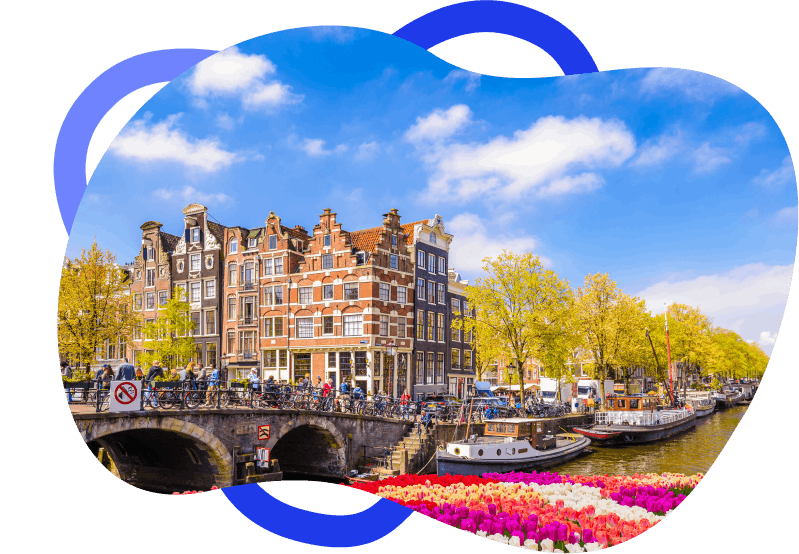

Table of contents
Before we start: visas vs. permits
Before we start, it’s important to understand the difference between a visa and a permit, because in several cases your employees may just need a permit. An entry visa (or specifically for the Netherlands, the MVV visa) grants temporary permission to enter the country for a specific purpose. In other words, it allows people to cross the border. Citizens of some countries don’t need to apply for this entry visa, you can find the full list of exemptions here.
A permit is a document that gives your employees the right to reside and/or work in the Netherlands on a longer-term basis, which is usually what they'll need if they plan to stay in the country for more than 90 days.
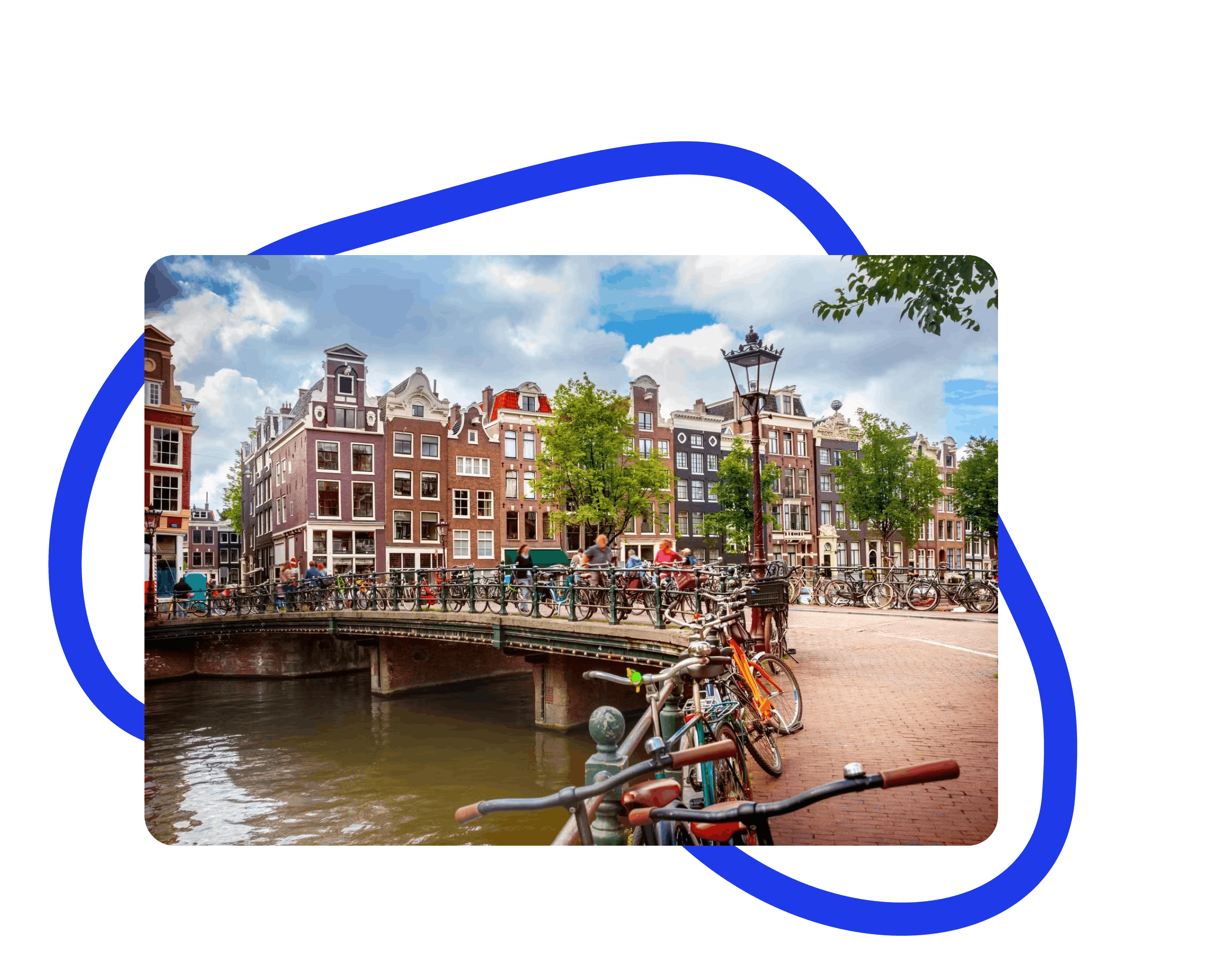
Who can enter the Netherlands without a visa or work permit?
- Citizens of EU/EEA countries and Switzerland
If your talent is a citizen of an EU country, they are entitled to freedom of movement to and within the Netherlands. They won’t need a visa or residence permit to enter the Netherlands and take up employment. The same applies if their nationality is from Iceland, Liechtenstein, Norway, or Switzerland (EFTA countries).
- Nationals of specific countries
Your employees will not need an entry visa if they are citizens of Australia, Canada, Japan, Monaco, New Zealand, United Kingdom, United States of America, South Korea, or Vatican City. However, citizens of these countries need to apply for permits to live and work in the country.
- Third-country family members of EU nationals
If your employees are EU/EEA nationals, their close family members (i.e. spouses and children) do not need to apply for a visa. Instead, they would apply for a verification against EU law once they arrive in the Netherlands.
- Holders of residence permits from Schengen countries
If your employees already have a valid residence permit from another Schengen country and your company is a recognized sponsor, they aren’t required to apply for a visa to enter the Netherlands.
- Expats already living in the Netherlands
If your employees have already lived in the Netherlands for at least two years, and are looking to renew their residence permit, they don’t need to apply for a visa.
What types of work permits are there for the Netherlands?

EU Blue Card
The European Blue Card is for employees who perform highly skilled work within the EU. You would apply for this type of residence permit on behalf of your employee at the IND (Immigration and Naturalisation Service). Things to remember:
✅ Your employees must have an offer extended for highly qualified work — work that usually requires a higher education qualification, like a university degree
✅ They must earn a monthly gross salary of at least €5,688 or €4,551 for recent graduates in 2025 (these numbers change annually)
✅ Their employment contract must last at least 12 months
✅ Their qualifications must be recognized by Nuffic (more on this under Recognizing Qualifications).
Further useful resources: Dutch Employer Checklist: Blue Card for IT & Business
Your talent is in good hands with us
10,000+ relocations
4.75 avg. CSAT
4.9 Rating on![]()
Stress-free employee relocation to the Netherlands
Whether you're relocating 10 or 10,000 employees to the Netherlands, our relocation specialists can guide your talent through every step of their move, from securing work visas to finding housing and more.
What is the application process for the Netherlands?

Recognizing qualifications
When applying for an EU blue card, your employees’ formal degrees have to be evaluated by Nuffic — the Dutch organization for internationalization in education. However, not every kind of qualification can be evaluated. Here’s what kinds of diplomas and certificates they review:
- Those from officially recognized, accredited educational institutions
- Those from study progress that took at least 1000 hours
Certificates and diplomas from short-term programmes and courses, or those received from private education institutions, don’t apply as formal qualifications for Nuffic. Dutch diplomas don’t need to be recognized through this step. Your employees can submit their documents through the website IDW.nl, and usually need to prepare the following:
- A copy of their diplomas/certificates
- A copy of the grades list of the completed diploma or certification
- A copy of their passport, residence permit or identity card
- In certain cases, A sworn translation of the required documents if they’re not issued in Dutch, English, German or French
- Note: additional documents may be necessary based on the country where your employees received their degree
How to get a residence permit for the Netherlands
Once your talent arrives in the Netherlands, they are obligated to collect their permit within 90 days. First, they need to wait for a letter from the IND (Immigration and Naturalisation Service), which indicates that the residence permit collection appointment can be scheduled. The IND aims to have it ready within 2 weeks following your employee’s arrival.
Once your employee gets the letter, they have to make an appointment online at the IND desk. It isn’t always possible to visit an IND desk at short notice, so the appointment should be made as quickly as possible.

Permanent residence permit in the Netherlands
After 5 years of employment in the Netherlands, your employees are eligible to apply for a Dutch permanent residency. Here are some criteria they have to cover:
- Hold a valid Dutch residence permit for 5 years or more directly before the application
- Have the permit for a non-temporary purpose
- They’ve resided in the country without interruption for 5 years before submitting an application
- They have registered in the Municipal Personal Records Database (BRP) in their place of residence
- They have sufficient income — the number varies depending on the kind of employment, please check here for different examples
- They hold a civic integration diploma to prove they can read, write, speak and understand sufficient Dutch
The processing times for permanent residence permit applications can take up to 6 months.
Can you move to the Netherlands with your family?
Family reunification for permit holders is allowed for spouses, same-sex partners, unmarried partners and minors in the Netherlands. Things to remember:
- Your employee has to be their partner’s or child’s sponsor in the application process
- Your employee has to either be married to their partner, be in a registered partnership, or be able to prove that they’ve been in a long-term relationship
- Their family members must move in at the same registered address as where your employee lives.
- Your employee must make sufficient income, which is a number that changes depending on their circumstances. More details here.
- In many cases, spouses will have to pass a civic integration exam abroad. The list of exemptions is here.

What insurances do you need in the Netherlands?
Anyone who resides or works in the Netherlands has to enroll with a health insurer to cover medical expenses. Your employees must enroll within four months of arrival. In order to apply, they need to complete the city registration (BSN) in their municipality first (more on this under Settling-in admin). Here is a general overview of the types of insurance available:
Basic insurance
Basic health insurance covers standard care provided by a general practitioner, hospital or pharmacy. An overview of the key details:
- The basic insurance package is mandatory not just for your employees, but also their children
- What services the basic package covers is determined by the government, and this may change annually. The government also decides on the amount of different deductibles and healthcare allowances.
- Certain care is deductible-free, such as visits to a GP or obstetric care. Other examples include hospital treatment, dental care up to the age of 18, maternity care, limited therapies such as physiotherapy, speech therapy, occupational therapy and dietary advice, certain medical devices and products.
Supplementary insurance
Supplementary insurance covers parts of the care that is not included in the basic package. For example, extra reimbursement for treatment at the dentist. An overview of the key details is:
- Your talent can choose from various packages, all of which are a supplement to the basic insurance. The health insurer determines the conditions and reimbursements, and the government has no influence
- Supplementary insurance isn’t required, and is up to the discretion of your talent.
List of public insurers

Health requirements in the Netherlands
Depending on your employee’s nationality, they may be required to take a tuberculosis test upon arrival in the Netherlands, within 3 months of receiving their permit. They can arrange an appointment at the Tuberculosis Department of the Dutch Municipal Health Service (GGD).
A list of exempt countries can be found here. Other exceptions include:
- Your employee already held a valid residence permit and is applying for a different kind of permit
- They had previously undergone a TB test in the Netherlands, less than 6 months ago
- Your employee has a permit for long-term residence issued by another EU country or is a family member and was already admitted to another EU country as a family member of the long-term resident.
Settling in the Netherlands
Once your employee arrives in the Netherlands, they’re required to register in their municipality to get their citizen service number.

City/municipality registration
- Upon arrival in the Netherlands, your employees must register in the Municipal Personal Records Database (BRP) where they live within 5 days of their arrival. This appointment usually requires:
- Residence permits and employment contracts, if applicable
- A valid passport
- Rental contract to register a home address
If your employees are moving with a partner and/or children, they must also bring their family members to the appointment, and may be required to bring marriage and birth certificates.
Some municipalities only process registrations via a pre-scheduled appointment. Getting one can take a few weeks and delay the process of getting a BSN (Burgerservicenummer) number.
Burgerservicenummer after registering in the BRP
Once your employees register in the BRP, they will receive a Burgerservicenummer (BSN, or citizen service number). They need it for all of their administration in the Netherlands, such as paying taxes, opening a bank account, receiving their salary, visiting a doctor, getting health insurance and applying for benefits. They will receive the BSN number within 1 week at their home address via post.
If your employees will live in the Netherlands for less than 4 months, they can register in the BRP as a non-resident, using an address abroad.
What is the 30% ruling in the Netherlands?
The 30% ruling is a Dutch tax exemption for employees who were hired abroad to work in the Netherlands. Under certain conditions, you can pay 30% of their salary as a tax-free allowance. This allowance is considered compensation for the expenses that the employee incurs by working outside his or her home country. Here’s when this can take effect:
- Your employee works in paid employment
- Their gross annual salary must be more than € 46,107
- They have specific expertise that is hard to find on the Dutch labor market
- They were recruited from outside the Netherlands
- They must have lived at a distance of more than 150 kilometers from the Dutch border, for more than 16 out of the 24 months before their worst working day in the Netherlands. Your talent would not be able to apply for this tax exemption if they have lived in Belgium, Luxembourg, and parts of Germany, France, or the UK
- They must submit their application for this tax exemption within 4 months after starting to work for you. This is something we can help with.
Relocating talent to the Netherlands?
Talk to us, we've got you covered!
Trusted by top HR professionals
Explore other relocation guides
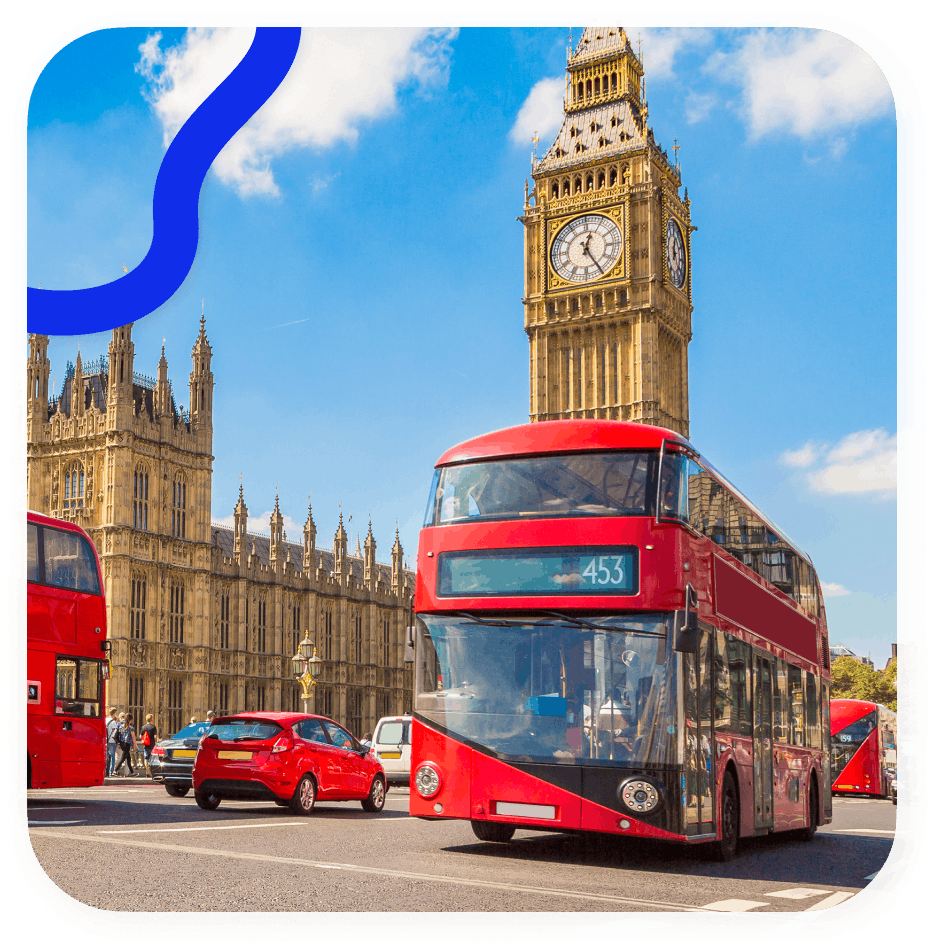
Relocation guide to the UK
Get practical advice on UK visa and work permits, as well as settle in the country, and more.
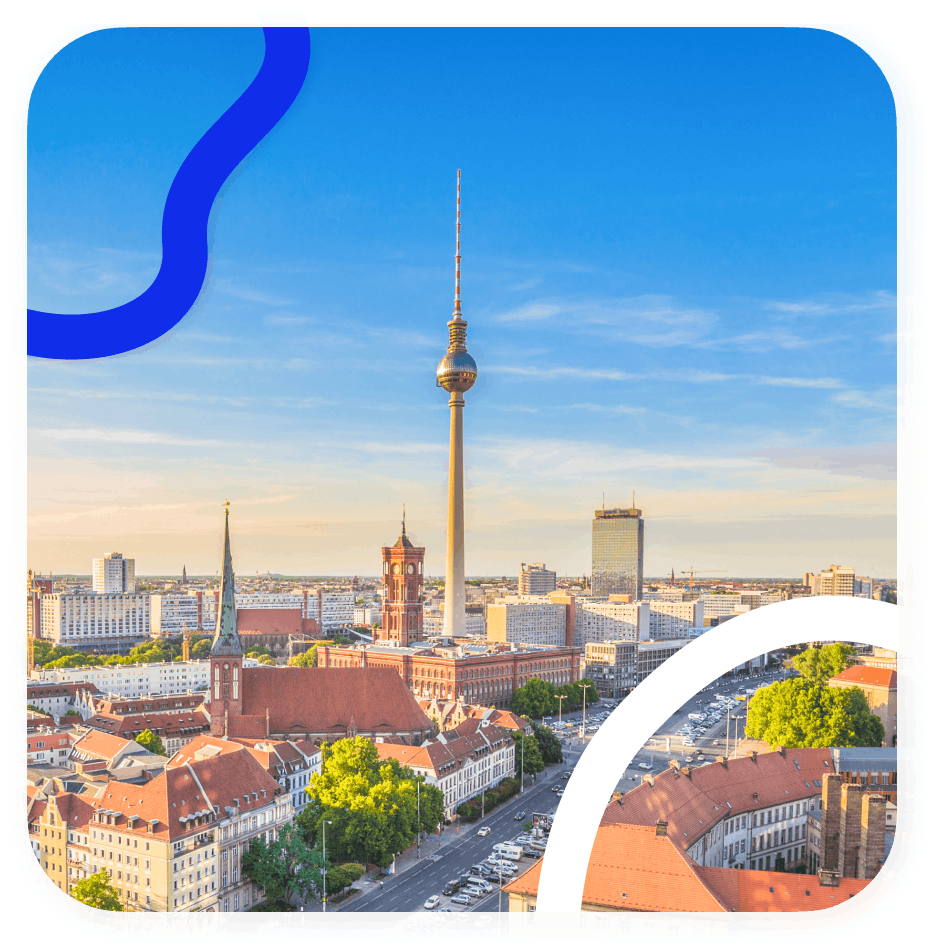
Relocation guide to Germany
Read Germany's guide to moving or relocating employees, featuring insights into work visas and settling-in procedures.
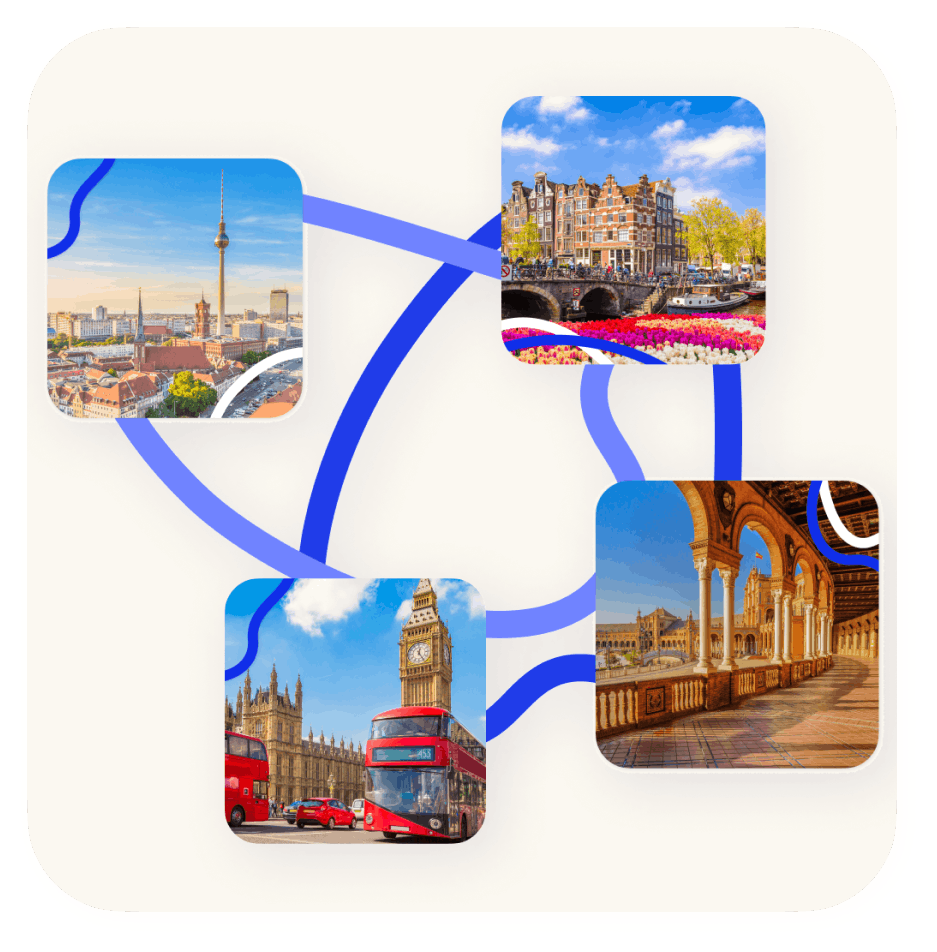
Global relocation guides
Explore our library with all the relocation guides and other useful resources.
More relocation guides and countries we serve
Our comprehensive relocation guides and services go beyond the essentials, providing valuable insights for a smooth relocation. Gain valuable insights to ensure a seamless relocation experience for your employees across various countries. Ready to talk to our experts? Book a demo today.






